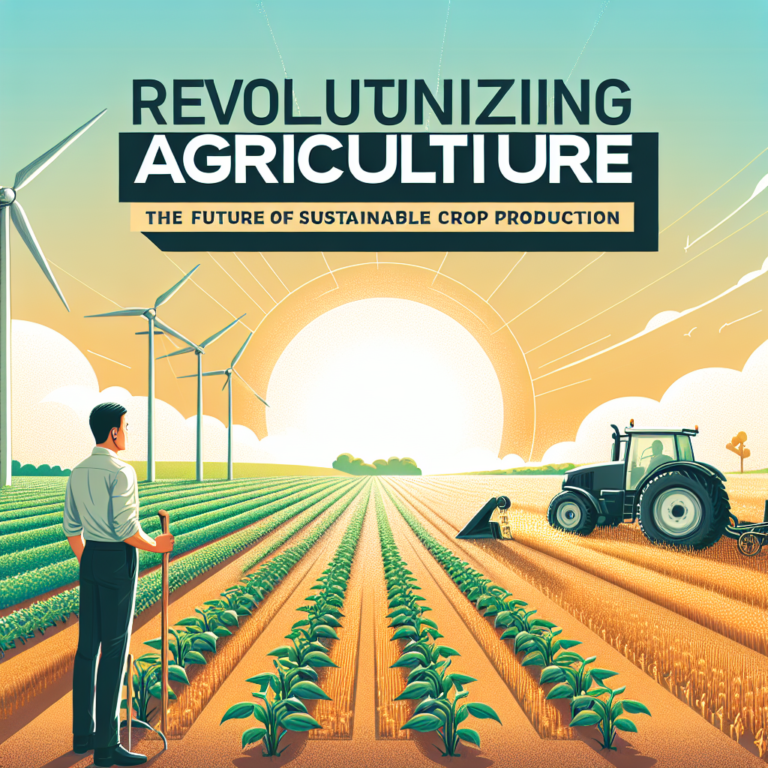Agriculture is an essential industry that provides food, fuel, and fiber for our growing global population. As the world continues to face challenges such as climate change, water scarcity, and limited arable land, there is a need to revolutionize agricultural practices to ensure sustainable crop production for future generations.
One of the key solutions to revolutionizing agriculture is the adoption of sustainable farming practices. Sustainable agriculture focuses on using resources efficiently, minimizing environmental impacts, and promoting biodiversity. This can include methods such as conservation tillage, crop rotation, integrated pest management, and precision agriculture.
Conservation tillage involves reducing or eliminating tillage practices to minimize soil erosion and improve soil health. By leaving crop residue on the soil surface, farmers can improve water infiltration, reduce soil compaction, and enhance soil fertility. This not only benefits the environment but also helps farmers increase their yields and profits.
Crop rotation is another important sustainable farming practice that involves planting different crops in succession on the same field. This helps improve soil health, reduce pest and disease pressure, and enhance nutrient cycling. By rotating crops, farmers can maintain the fertility of their soil and reduce the need for synthetic fertilizers and pesticides.
Integrated pest management (IPM) is a holistic approach to pest control that combines biological, cultural, and chemical methods to manage pest populations effectively. By using natural predators, crop diversification, and targeted pesticide applications, farmers can reduce the impact of pests on their crops and minimize the use of harmful chemicals.
Precision agriculture is a cutting-edge technology that uses data and analytics to optimize farming practices and maximize crop yields. By using sensors, drones, and GPS technology, farmers can monitor crop health, soil conditions, and weather patterns in real-time. This allows them to make informed decisions about planting, irrigation, fertilization, and pest control, ultimately leading to more efficient and sustainable crop production.
In addition to these sustainable farming practices, the future of sustainable crop production also lies in innovation and research. Scientists and researchers are continuously developing new technologies and techniques to improve plant genetics, increase crop resilience to climate change, and enhance crop productivity. This includes the development of drought-tolerant crops, disease-resistant varieties, and biofortified crops with higher nutritional value.
Furthermore, the integration of biotechnology, genetic engineering, and artificial intelligence in agriculture is transforming the way we grow and produce crops. By harnessing the power of these technologies, farmers can reduce inputs, increase outputs, and mitigate environmental impacts. This includes the use of genetically modified organisms (GMOs) to improve crop traits such as pest resistance, drought tolerance, and nutrient efficiency.
Overall, revolutionizing agriculture for sustainable crop production is crucial for ensuring food security, protecting the environment, and promoting economic growth. By adopting sustainable farming practices, embracing cutting-edge technologies, and investing in research and innovation, we can create a more resilient and productive agricultural system for the future. It is time to think creatively and act decisively to transform agriculture and secure a sustainable future for generations to come.
